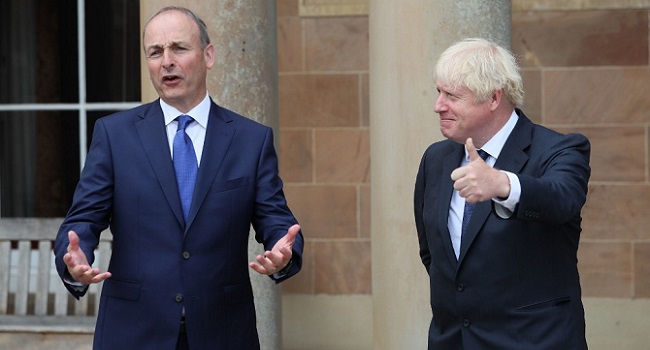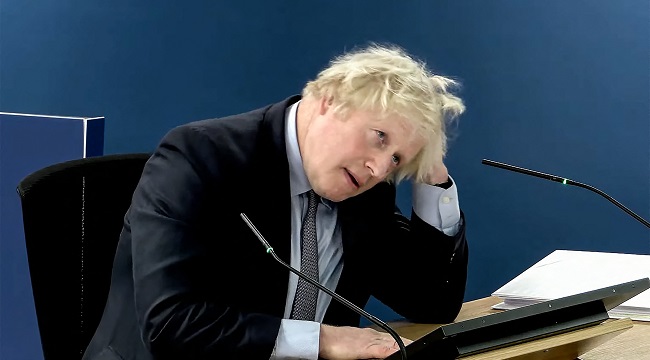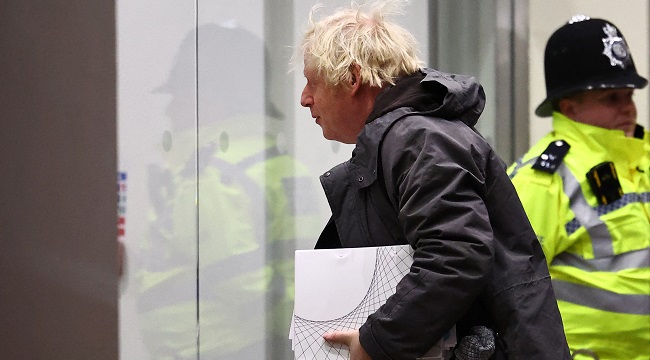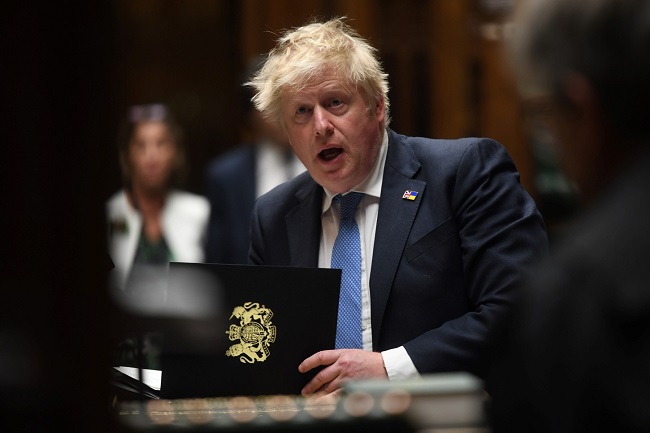
Ireland’s prime minister Michael Martin said Thursday that his British counterpart Boris Johnson was “very committed” to reaching a trade agreement with the European Union, after they met in Belfast.
It was the pair’s first face-to-face meeting since Martin was elected Taoiseach in June.
“We both agreed on the absolute necessity for a free trade agreement that would be tariff-free, quota-free,” Martin told reporters after the “wide-ranging” meeting.
“That’s the best possible outcome for the European Union, for the United Kingdom, for businesses in the island of Ireland in terms of jobs and certainty.”
Martin added that Johnson was “very committed to reaching a comprehensive agreement with Europe”.
The British prime minster’s office later said Johnson had told Martin that Britain would “continue to take pride in high environmental, animal welfare and labour standards outside the European Union”.
“Our priority remains protecting Northern Ireland’s place in our United Kingdom and preserving the huge gains from the peace process,” added his Downing Street office.
Johnson was also scheduled to meet Northern Ireland First Minister Arlene Foster and Deputy First Minister Michelle O’ Neill during the visit.
Ahead of his trip, Johnson said Britain would “stand side-by-side” with Northern Ireland.

Britain formally left the European Union on January 31 — after voting to leave in a 2016 referendum — but is currently in a standstill transition period until the end of 2020 as it tries to negotiate a new trade deal with the European Union.
Talks are ongoing between London and Brussels to try and find a mutually acceptable deal.
The stalled talks are set to continue until October but fears are growing that almost half a century of economic integration with Europe and increasingly frictionless travel will end abruptly, without a deal, on December 31.
Also on Thursday, Britain’s senior Brexit negotiator, David Frost, tweeted that round seven of negotiations would begin in Brussels next week.
“Our assessment is that agreement can be reached in September and we will work to achieve this if we can,” wrote Frost.
However, he added: “The UK’s sovereignty, over our laws, our courts, or our fishing waters, is of course not up for discussion and we will not accept anything which compromises it.”
AFP




